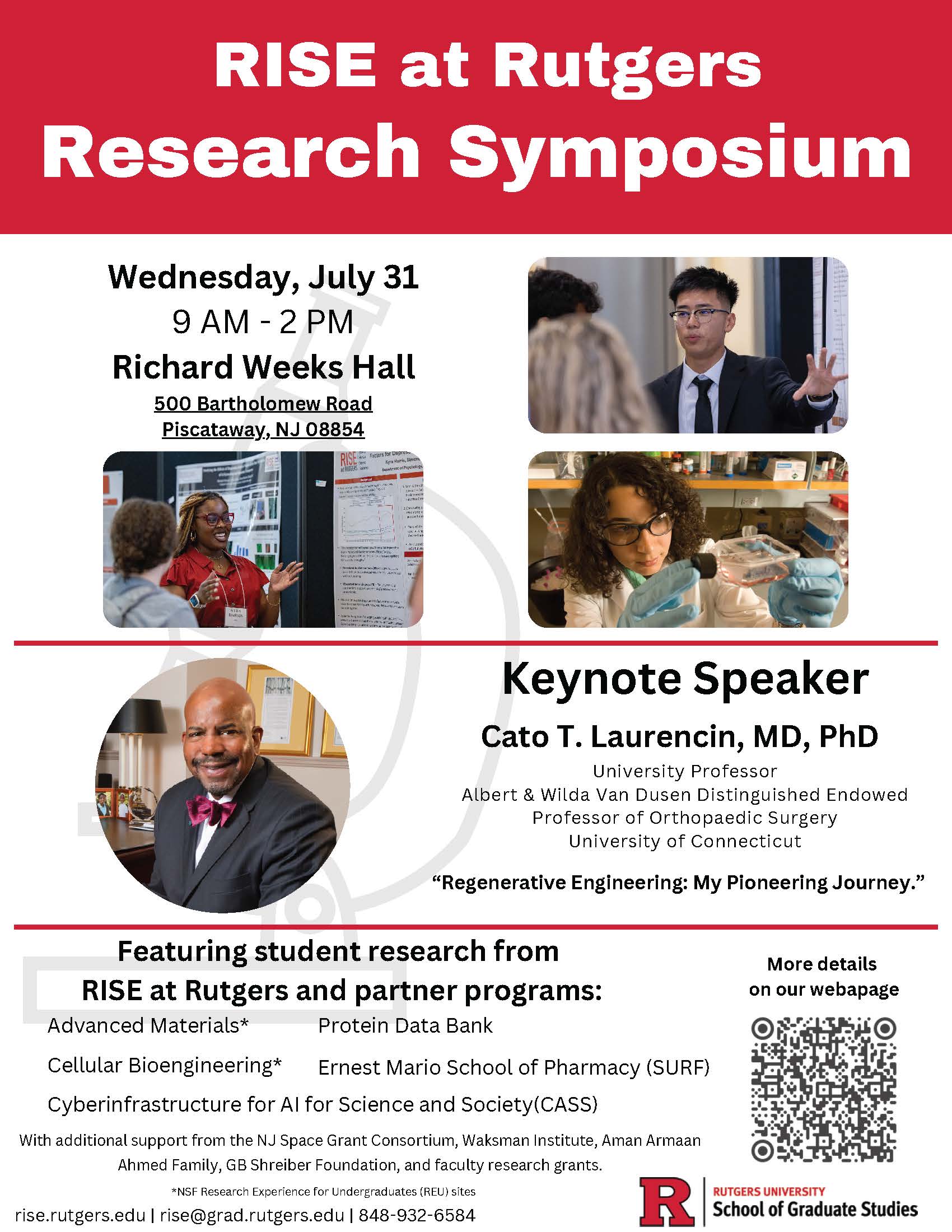Event Description
Come join us in Richard Weeks Hall on Wednesday 31, 2024 for our end of year symposium. You will hear the talks of our 2 5 MP winners before listening to keynote speaker Cato T. Laurencin, M.D., Ph.D address. After this will be a poster presentation showing off all the amazing work completed by this years RISE Cohort. More information can be found Here.

RISE at Rutgers 5 MP Competition
Diversity, Inclusion and Equity
Event Description
Come join us in Richard Weeks Hall on Friday 19, 2024 to see the great work our summer students have done to date as they compete for the chance to open for the RISE Symposium guest speaker at our end of year symposium.
Hae Chang Gea
Activities
- Primary liaison for Graduate Directors
- Chairs the Humanities and Social Sciences Committees for the review of new courses and curricula
- Supervises and monitors the implementation of student Individual Development Plans
- Monitors and reviews all exceptions to the SGS seven-year rule policy
- Prepares annual assessment report for the Assessment Council on Learning Outcomes
- Chairs the Academic Appeals Committee
- Facilitates and implements inter-institutional academic agreements with graduate programs as needed
- Leads the Bevier Awards selection process and serves on the SGS Annual Awards Committee
SGS Recognizes John Wu's Award
Rutgers School of Graduate Studies Recognizes John Wu's STEM Award
2024 Merit and Achievement Awards Ceremony
The School of Graduate Studies proudly recognizing the notable achievements of graduate students, faculty, and staff at the annual Merit and Achievement Awards Ceremony. These awards recognize important accomplishments in research and scholarship, teaching and mentoring, leadership, outreach, and service across all disciplines, through Chancellor-level affiliations, and within specific disciplinary clusters.
Effective Mentoring of Undergraduates in Research Workshop
By Antonia Kaz
Congratulations to Steven and Sabrina
We are happy to announce that both Steven Clark and Sabrina Appel have successfully defended their Ph.D. in the Rutgers physics department. These two Physics and Astronomy REU participants crossed the finish line in their race to their PhD within 30 minutes of each other! We are always glad to see our Super Grads and Alumni prosper!